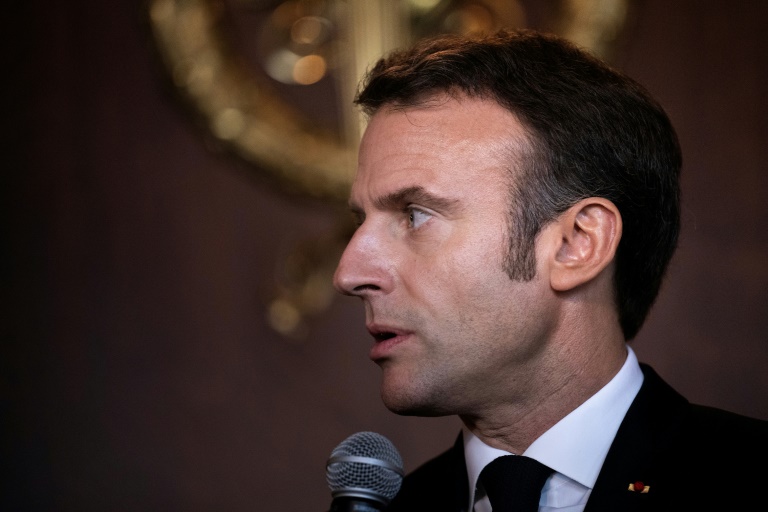French President Emmanuel Macron complained about US industrial subsidies during a lunch on the first day of his state visit
France’s President Emmanuel Macron fired an undiplomatic volley at his American hosts on the first day of a rare state visit to Washington, telling lawmakers Wednesday that US industrial subsidies are “super aggressive” against French competitors.
“This is super aggressive for our business people,” an AFP reporter heard Macron tell members of Congress and business leaders, who had invited him to lunch ahead of the main part of the state visit on Thursday, when the French leader will spend most of the day with President Joe Biden.
Macron was referring to Biden’s signature policy called the Inflation Reduction Act, which is set to pour billions of dollars into environmentally friendly industries — with strong backing for US-based manufacturers.
The White House touts the IRA legislation as a groundbreaking effort to reignite US manufacturing and promote renewable technologies, but European Union governments are crying foul, threatening to launch a trade war by subsidizing their own green economy sector.
Macron’s blunt assessment, saying he just wanted “to be respected as a good friend,” tore some of the veneer off a carefully choreographed state visit intended to celebrate historic US-French ties — and also tackle the trickier parts of the US-EU transatlantic alliance.
Macron warned that the United States championing its own industry under the IRA will “kill a lot of jobs” in Europe and it may “perhaps fix your issue but you will increase my problem.”
– Space talk –
Earlier, Macron joined Vice President Kamala Harris at the NASA facility in Washington to discuss cooperation in space.
“France is a vital ally to the United States and this visit demonstrates the strength of our partnership, our friendship…, one that is based on shared democratic principles and values,” Harris told Macron.
Macron stayed in the high-tech sphere later with a meeting on civilian nuclear energy. His busy schedule, which also included a working lunch to discuss biodiversity and clean energy, and a visit to the historic Arlington National Cemetery, illustrated the ambitions set for the trip — the first formal state visit by a foreign leader to Washington since Biden took office nearly two years ago.
The core of the visit will be on Thursday, including a White House military honor guard, Oval Office talks with Biden, a joint press conference and a banquet where Grammy-award-winning American musician Jon Batiste will perform.
– EU-US tensions –
Trade tensions, however, are only part of the uncomfortable flip side to the red carpet occasion.
Another gripe in Europe is the high cost of US liquid natural gas exports — which have surged to help compensate for canceled Russian deliveries.
White House National Security Council spokesman John Kirby told reporters that the US side wants to defuse tensions, promising “transparent, forthright” discussions.
“We certainly will stay open to listening” to the EU concerns, he said.
There is also divergence on how to deal with the rise of superpower China. The question — with Washington pursuing a more hawkish tone and EU powers trying to find a middle ground — is unlikely to see much progress.
“Europe has since 2018 its own, unique strategy for relations with China,” tweeted French embassy spokesman Pascal Confavreux in Washington.
Kirby said China will be “very high on the agenda” this week but stressed that both countries share a broad approach.
“We believe that not only France, but every other member of the G7 — frankly, our NATO allies too — see the threats and challenges posed by China in the same way.”
The breadth of Macron’s entourage — including the foreign, defense and finance ministers, as well as business leaders and astronauts — illustrates the importance Paris has put on the visit.
At the White House, however, a senior official said the main goal of the state visit is to nurture the “personal relationship, the alliance relationship” with France — and between Biden and Macron.









